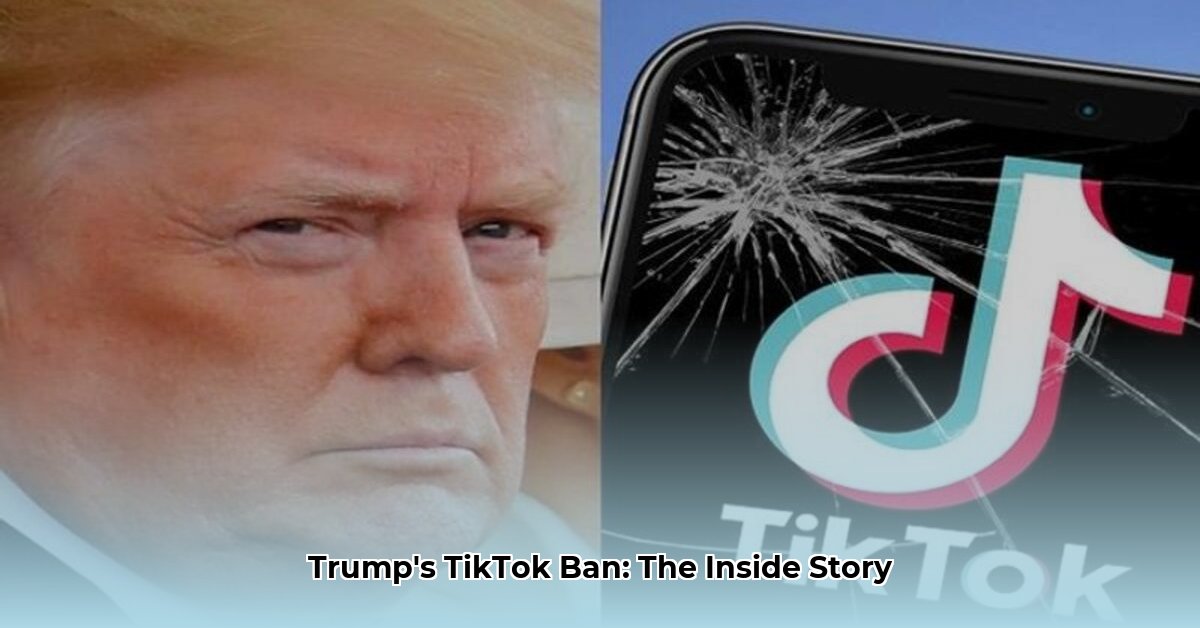TikTok, the wildly popular social media app, faced a turbulent period under the Trump administration, marked by executive orders aimed at banning the platform in the United States. This in-depth analysis explores the timeline of events, legal challenges, and the ultimate shift in policy under the Biden administration.
The Genesis of the Controversy
The Trump administration’s actions against TikTok stemmed from national security concerns, primarily revolving around data privacy and potential influence by the Chinese government. These concerns, while debated in their severity, centered on the app’s ownership by Chinese company ByteDance.
A Chronology of Key Events
| Date | Event | Significance |
|---|---|---|
| Aug 6, 2020 | Executive Order 13942 issued | Declared transactions with ByteDance a national security risk. |
| Aug 14, 2020 | Executive Order 13943 issued | Demanded divestiture of TikTok’s U.S. operations within 90 days. |
| Various | Legal challenges filed | Contested executive orders, citing presidential authority & due process. |
| Various | Preliminary injunctions issued | Temporarily blocked enforcement of the ban. |
| June 2021 | Biden administration revokes Trump-era executive orders | Signaled a shift in approach and focus on a new security assessment. |
Executive Order 13942: Targeting Transactions
Executive Order 13942, issued on August 6, 2020, declared any transactions with ByteDance a national security risk. The order cited concerns about the potential for the Chinese government to access user data, raising fears about surveillance and potential manipulation of content.
Executive Order 13943: The Divestiture Demand
Just days later, Executive Order 13943 intensified the pressure, demanding that ByteDance divest its U.S. operations within 90 days or face a complete ban. This order underscored the administration’s commitment to restricting TikTok’s presence in the United States.
Legal Challenges and Judicial Pushback
The executive orders immediately faced legal challenges, questioning the president’s authority to implement such a ban without Congressional approval. Concerns about free speech and due process were central to these arguments. Preliminary injunctions, issued by various courts, temporarily halted the ban’s enforcement while the legal battles continued.
The Biden Administration: A Change of Course
The Biden administration, upon taking office, revoked Trump’s executive orders and initiated a broader review of app-based security risks, signaling a move away from targeting individual companies toward a more comprehensive approach. This review continues to assess potential threats from various apps and seeks to develop long-term strategies for digital security.
The Current Landscape and Future Implications
TikTok remains available in the U.S., but its future is subject to the ongoing security review and the potential for future regulatory actions. Key questions persist:
- Data Security: How can user data be protected from potential misuse by foreign governments or entities?
- National Security: What constitutes a legitimate national security threat in the digital realm, and how can such threats be mitigated without infringing on individual rights?
- Government Regulation: What is the appropriate role of government in regulating technology and balancing national security with free speech and economic interests?
The TikTok case serves as a crucial precedent, shaping how governments might address similar situations involving technology, data security, and international relations in the future. Ongoing research and evolving legal frameworks will likely influence the future of this debate. Some experts suggest that the evolving security threat landscape could lead to a renewed focus on TikTok and similar apps, while others believe that a more balanced approach, emphasizing international cooperation and data security standards, is more likely. The future remains uncertain, and the interplay of these factors will determine the ultimate outcome.







